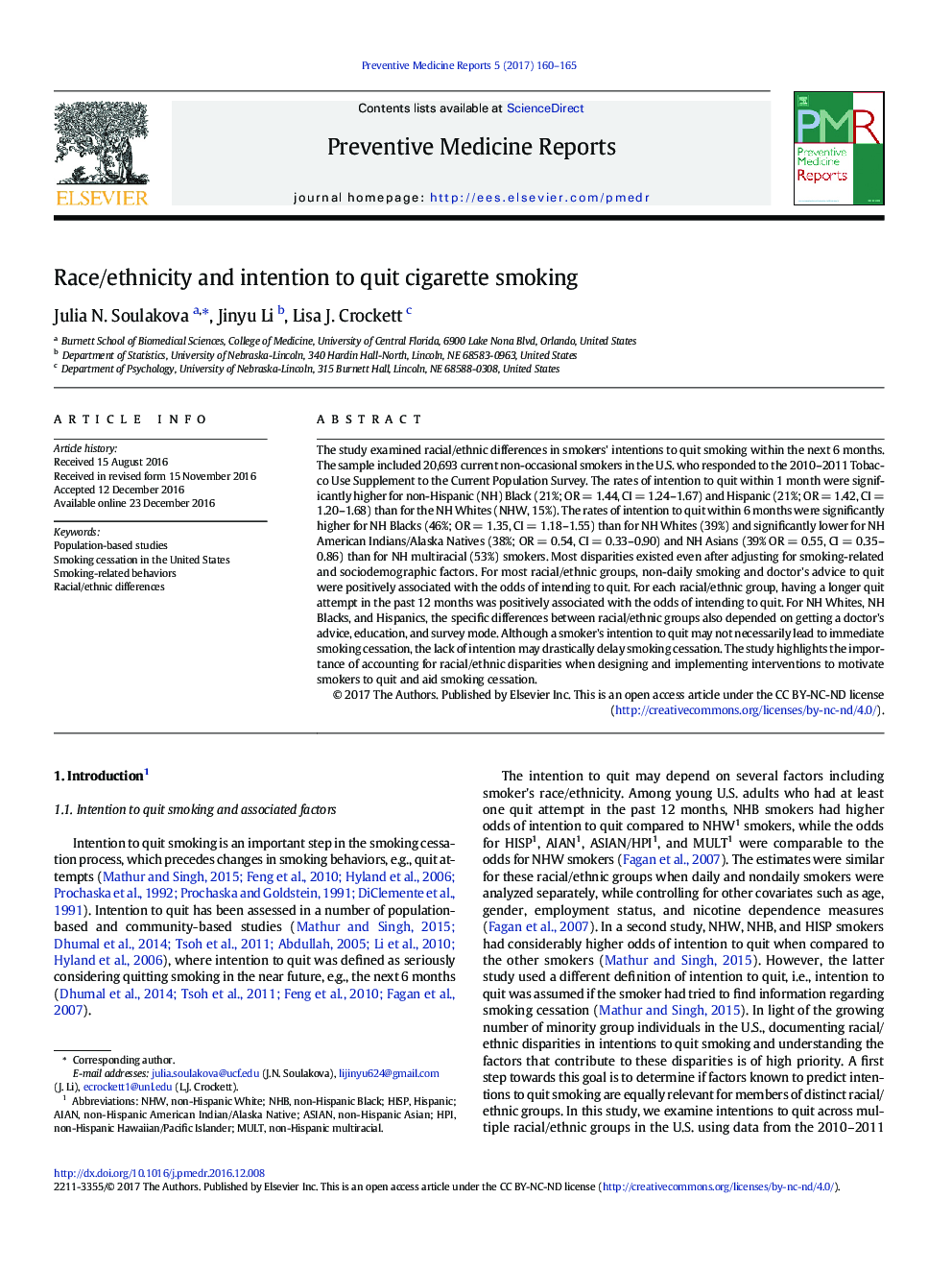| Article ID | Journal | Published Year | Pages | File Type |
|---|---|---|---|---|
| 5723766 | Preventive Medicine Reports | 2017 | 6 Pages |
â¢The study used a sample of 20,693 U.S. current non-occasional smokers.â¢Racial/ethnic disparities in intentions to quit within 6 months were assessed.â¢Non-Hispanic (NH) Whites had lower rate of intending to quit than had NH Blacks.â¢NH Asians had lower rate of intending to quit than had NH multiracial.â¢Quit attempts, daily smoking, and doctor's advice strongly impact intentions to quit.
The study examined racial/ethnic differences in smokers' intentions to quit smoking within the next 6Â months. The sample included 20,693 current non-occasional smokers in the U.S. who responded to the 2010-2011 Tobacco Use Supplement to the Current Population Survey. The rates of intention to quit within 1Â month were significantly higher for non-Hispanic (NH) Black (21%; ORÂ =Â 1.44, CIÂ =Â 1.24-1.67) and Hispanic (21%; ORÂ =Â 1.42, CIÂ =Â 1.20-1.68) than for the NH Whites (NHW, 15%). The rates of intention to quit within 6Â months were significantly higher for NH Blacks (46%; ORÂ =Â 1.35, CIÂ =Â 1.18-1.55) than for NH Whites (39%) and significantly lower for NH American Indians/Alaska Natives (38%; ORÂ =Â 0.54, CIÂ =Â 0.33-0.90) and NH Asians (39% ORÂ =Â 0.55, CIÂ =Â 0.35-0.86) than for NH multiracial (53%) smokers. Most disparities existed even after adjusting for smoking-related and sociodemographic factors. For most racial/ethnic groups, non-daily smoking and doctor's advice to quit were positively associated with the odds of intending to quit. For each racial/ethnic group, having a longer quit attempt in the past 12Â months was positively associated with the odds of intending to quit. For NH Whites, NH Blacks, and Hispanics, the specific differences between racial/ethnic groups also depended on getting a doctor's advice, education, and survey mode. Although a smoker's intention to quit may not necessarily lead to immediate smoking cessation, the lack of intention may drastically delay smoking cessation. The study highlights the importance of accounting for racial/ethnic disparities when designing and implementing interventions to motivate smokers to quit and aid smoking cessation.
